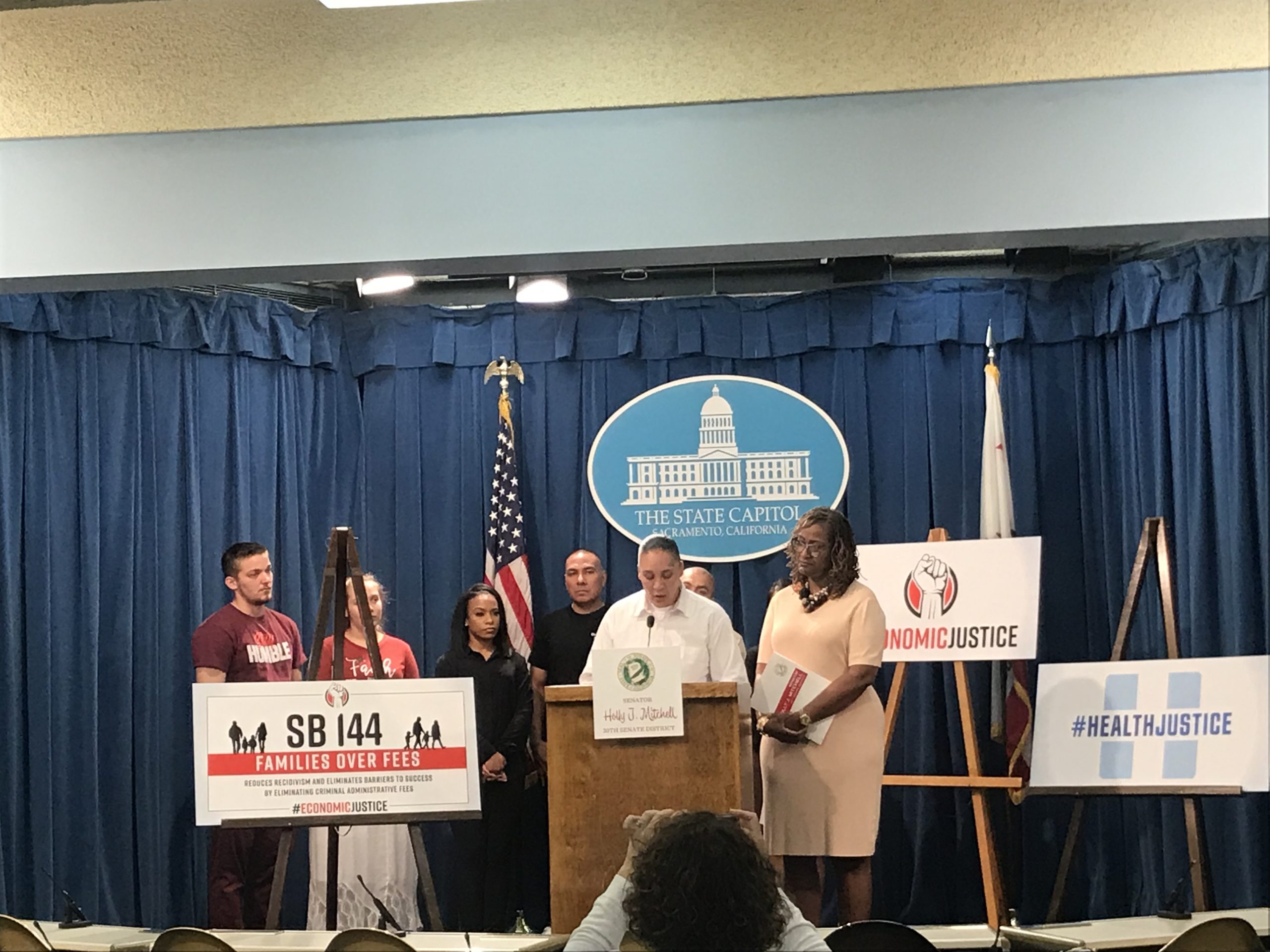Did you know that for decades, Californians have had to pay a fee when they are arrested and fingerprinted, and another fee when they are booked into jail? While in jail, they are charged a fee to use a Public Defender. And following release, they are then charged a monthly fee for the months and years they are on probation. These are a few of the dozens of administrative fees that attempt to balance the cost of incarceration on individuals and families impacted by the system. The fees continue to pile up, and on average total $5,000-$10,000 per person. When applied to a systemically racist criminal legal system, they help exacerbate inequity and further strip wealth from communities of color across the state.
But last month, Governor Newsom signed AB 1869 (The Families over Fees Act) into law, making California the first state in the nation to repeal administrative fees in the criminal system. The bill, which goes into effect next July, will permanently end the assessment and collection of 23 fees and write off the outstanding debt—more than $16 billion in total—allowing hundreds of thousands of Californians to rebuild their lives and provide for their families.
“Almost immediately after being released from prison,” says Angelique Evans, an organizer with A New Way of Life,“ Los Angeles County told me that I owed over $3,000 in administrative fees.” “As a mother, I wanted to prioritize taking care of my son and getting back on my feet. The fees held me back, both emotionally and financially.”
Though these administrative fees were structured to generate revenue for the government, they have had a punitive effect by making the re-entry experience even more difficult. If someone is unable to pay their fees, the money can be automatically deducted from their paycheck, taken out of their bank account or from their tax return until the debt is paid off. Because so many people who are incarcerated have low incomes, the vast majority are unable to pay the steep government fines and fees imposed on them.
This policy win builds on years of organizing and advocacy by Debt Free Justice California, a coalition of organizations and individuals across the state. Since 2017, the San Francisco Foundation has supported the coalition with grant support, convened funders to learn about the work, and voiced support for the local legislation. Many Bay Area nonprofits have played leading roles in the coalition, first working to eliminate the fees at the county level, while growing the coalition across the state. In 2018, San Francisco became the first county in the state to eliminate these fees, and Alameda, Contra Costa, and Los Angeles quickly followed suit. The leadership of these Bay Area nonprofits brought relief to thousands of Bay Area families, and momentum to the statewide legislation.
“Without question, what has made this work so successful is the community we created in our coalition: a band of researchers, advocates, legal aid professionals, grassroots organizers, government officials and impacted people. We each brought our unique and important perspectives to the table and honored each other. We unapologetically centered race in our messaging and advocacy and held fast to our principles of addressing problems at the root,” said Jhumpa Bhattacharya, a coalition steering committee member.
This victory is a reminder of what can happen when community comes together and centers the voices of people most impacted by the system.
“The criminal legal system disrupts people’s lives and families in so many ways that adding financial penalties sets people up for failure when we should be setting them up for future success. By eliminating fees, we’re paving the way to more resilient communities,” said San Francisco Public Defender Mano Raj.


